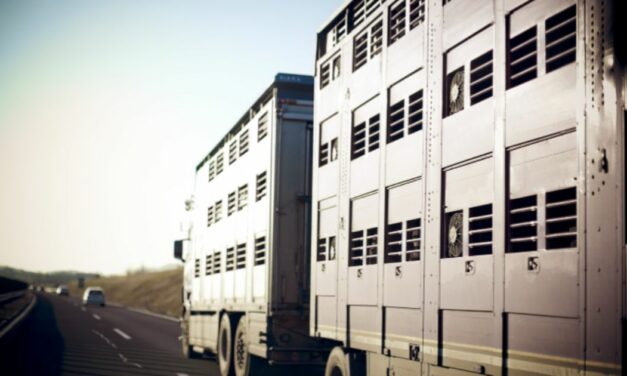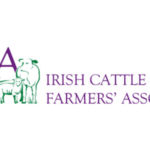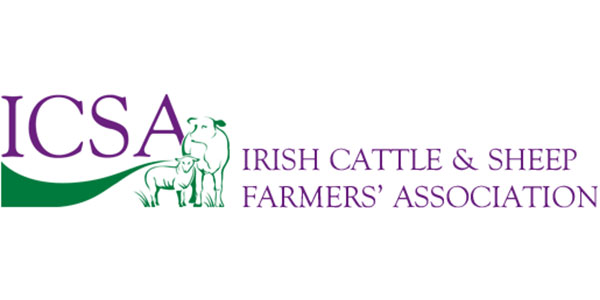Speech by ICSA president Gabriel Gilmartin to the Joint Oireachtas Committee on Agriculture, Food and the Marine on the closure of TLT International
21st November, 2013
Thank you, chairman, for the opportunity to contribute to this important debate on TLT.
Our first concern is the immediate difficulties faced by farmers and marts who are owed money. For a farmer, the exposure is hugely traumatic. Clearly, this is also a time of great stress to mart managers and committees.
However, the early indications are that the bulk of the debt is owed to marts. While there is a lot of speculation about the scale of the money owed to individual marts, a lot of the talk has been based on wild guesses.
The hope is that marts that have been run profitably for a number of years should have the financial resources to survive this and to ensure that it is business as usual. Assuming, of course, that they have been diligent in managing their credit levels and in pursuing monies owed on a weekly basis.
Obviously we have to be careful not to hype up the exposure of marts, or worse still speculate on the position of individual marts. Confidence in the mart system is as vital to the livestock trade as confidence in the financial system is to the economy.
It is important to emphasise that marts affected by the TLT issue continue to trade. While there was an obvious concern when the story broke, farmers continue to bring stock to marts and in the past few weeks it has been business as usual.
The fact that marts are paying their clients promptly as per usual will be reassuring. Some of the marts involved have issued statements which confirm that reserves are in place and that is an important step in rebuilding confidence.
On the other hand, demands that the marts should declare exactly how much they are owed in public is entirely premature. Mart committees need to tread very carefully in any public statements that they make.
A blanket statement by a mart saying that it is owed X thousand euro is meaningless, unless set in the context of the mart’s overall financial position. The overall financial position of a mart is best understood when the auditors lay the full accounts in front of the mart AGM. A loss of €50,000 could have an entirely different context in two marts depending on the underlying viability of their respective business models.
In due course, each mart will be accountable to its shareholders at its AGM, but in the short term, the interests of the shareholders are best served by ensuring that mart managers and their committees take steps to ensure that confidence in the mart is maintained while ensuring that suppliers of livestock are paid promptly as usual.
The immediate worry is how the marts and farmers are going to get what they are owed. The problem is that the receiver has been appointed by the bank and he will follow the regulations which set out that the receiver is paid first, the banks second, the taxman third and then everybody else.
There will be lingering doubts about whether HSBC made its biggest mistake in advancing the credit in the first place or whether the decision to appoint a receiver was too hasty and not well thought out.
There is certainly an argument that the best way to ensure a maximum return to all creditors would have involved an examinership or a more gradual wind-down of the credit facilities rather than the receivership which has wiped out TLT without any great hope that all monies owed can be recouped.
In the broader scheme of things, the question that exercises most thought is what the impact on live exports and the cattle trade in general will be. I would like to say that I am concerned that the impact of the TLT closure is being understated, particularly in political circles. Granted, there is reason to be hopeful that the demand for livestock around Europe and North Africa will remain constant and the slack will be taken up by other Irish exporters.
However, it would be naïve to think that this will happen easily. For one thing, the directors of TLT had built up a base of customers over many years and there is no obvious reason to think that these relationships can be readily taken over by another Irish exporter. Their influence on the Italian market has been of particular interest to the suckler farmers who have bred top of the range weanlings.
Moreover, the harsh fact is that the credit terms required by continental buyers aren’t going to soften just because of the TLT experience. What we do know is that the credit level of some €3 million that was available to TLT from HSBC bank is now off the table and marts apparently have an exposure that could run as high as €3 million also. That’s €6 million that will have to be found elsewhere.
Regardless of the marts’ exposure they are all likely to take a much more cautious line for the foreseeable future. The consequence is that either we develop an export trade based on payment up front or we find a better way of financing the sector. Neither option looks simple.
I have heard it said that TLT deserved to go under because they paid up to €50 too much on average. But if the trade to Italy is undermined, how much will top grade weanlings fall in 2014? The progressive suckler farmer breeding top U grade weanlings has no scope to take lower prices.
Farmers will be concerned also that any reduction in live exports will be a silver lining for the meat factories. Recent years have demonstrated that beef price and levels of live exports are inextricably linked.
A higher level of dairy calf exports in 2013 has been welcome after they collapsed in 2012. There has also been positive reaction from farmers to new live cattle export markets out of Europe to places such as Libya and Tunisia, some of which involved TLT. All of this ensured that cattle were scarcer for the meat industry here and scarcity equals firmer price.
It must also be remembered that TLT were involved in live sheep exports and again, the concern is that less live exports means lower factory prices for sheep farmers.
In reality it will really be this time next year before an accurate assessment can be made. Fortunately, Irish beef finishers have been strong customers for weanlings in recent weeks. However, the key for any mart and for the wider sector is to ensure that there is a strong trade over the full twelve months.
I want to emphasise that the whole episode is a huge wake-up call to us all. ICSA believes very firmly that unless there is competition on some sort of an equal footing between live exports and the meat factories, the future for sucklers in particular is very bleak.
It seems absurd that a deficiency of perhaps €6 million could completely undermine the potential for expansion as set out in Food Harvest 2020. But that’s the reality. It’s not all that long ago when a key player in the Irish meat processing sector got into difficulty with exports. It’s worth reminding ourselves that the Government at the time seemed to believe that, regardless of the cost, the export of beef had to be supported.
The question we now face is whether the Government of today understands and is committed to the importance of live exports. I’m not suggesting that TLT should be bailed out. But we must now examine what needs to be done to support the rest of the live export sector, the marts and the farmers who produce export grade weanlings. We also need to be concerned that a significant reduction in live exports could impact on the shipping service provided by Celtic Link.
In the final analysis, the overall debacle again raises the question of the availability of credit to the livestock business. Just as cattle and sheep farmers have found credit being squeezed by banks, TLT discovered that the banking sector seems to be intent on continuing to reduce its exposure to the sector.
It is also time to consider whether there is a different model that can be developed to support live exports. One which doesn’t depend on a small number of essentially small limited companies taking risks to drive the business.
Is there a role for export credit insurance? How would this be funded, especially given state aid rules? Is there a role for a co-operative structure? Can we deal with the financing required and what are the credit options that don’t leave marts or farmers exposed?
It’s easy now to pontificate about the risks that marts take in extending credit. But in the real world, credit is an integral part of most commerce across Europe, and in fact the EU Commission has been to the fore in pushing for credit terms of 30 days.
In reality, marts were playing a crucial role in supporting a policy in favour of live exports that has been enthusiastically backed by farm organisations, politicians and farmers. In most cases, marts did not provide extended credit facilities to any individual company, but are simply caught by the fact that one good sale involving as little as 7 days credit can involve tens of thousands of euros.
At this point, I would suggest that the Minister for Agriculture needs to realise that the future of live exports is now an urgent issue and at a minimum, it needs to be treated in the same way as the closure of a large scale employer. A task force to examine the way forward for live exports might be a first step.






